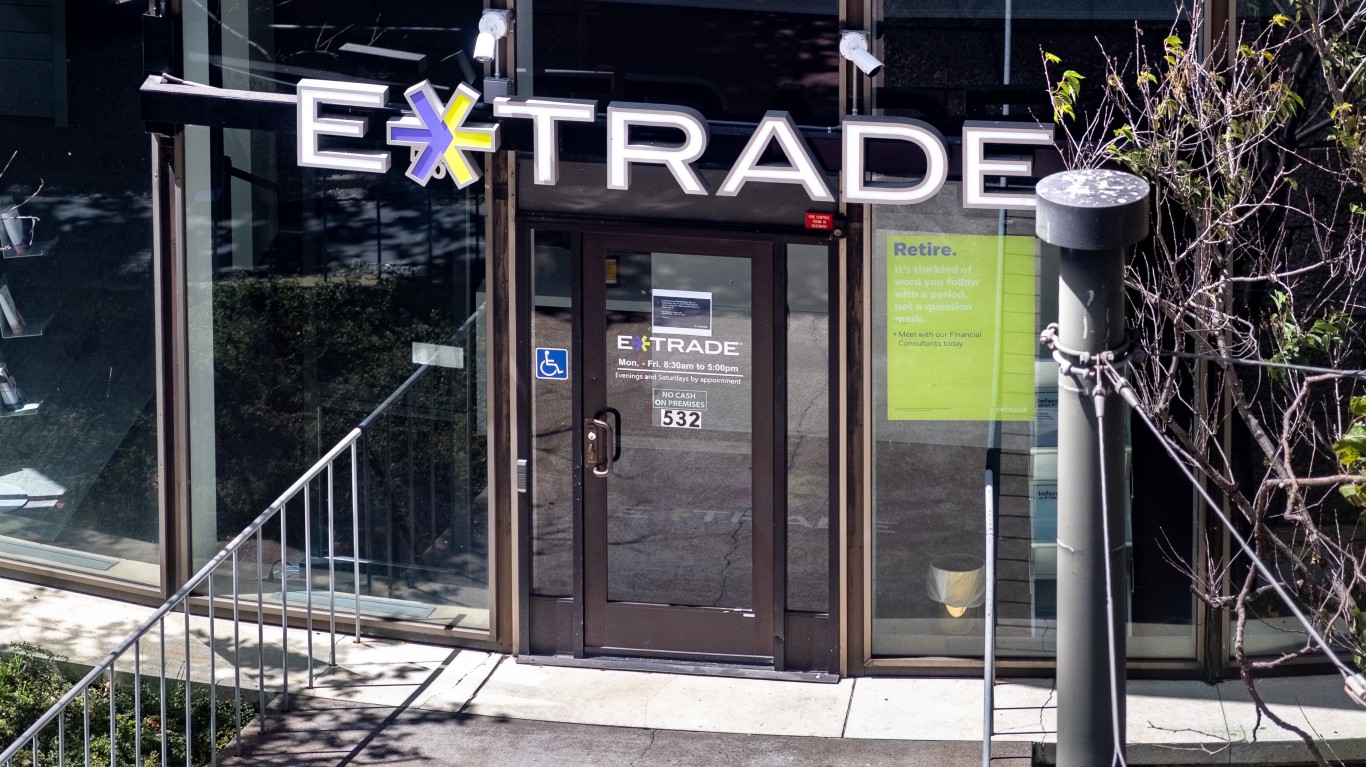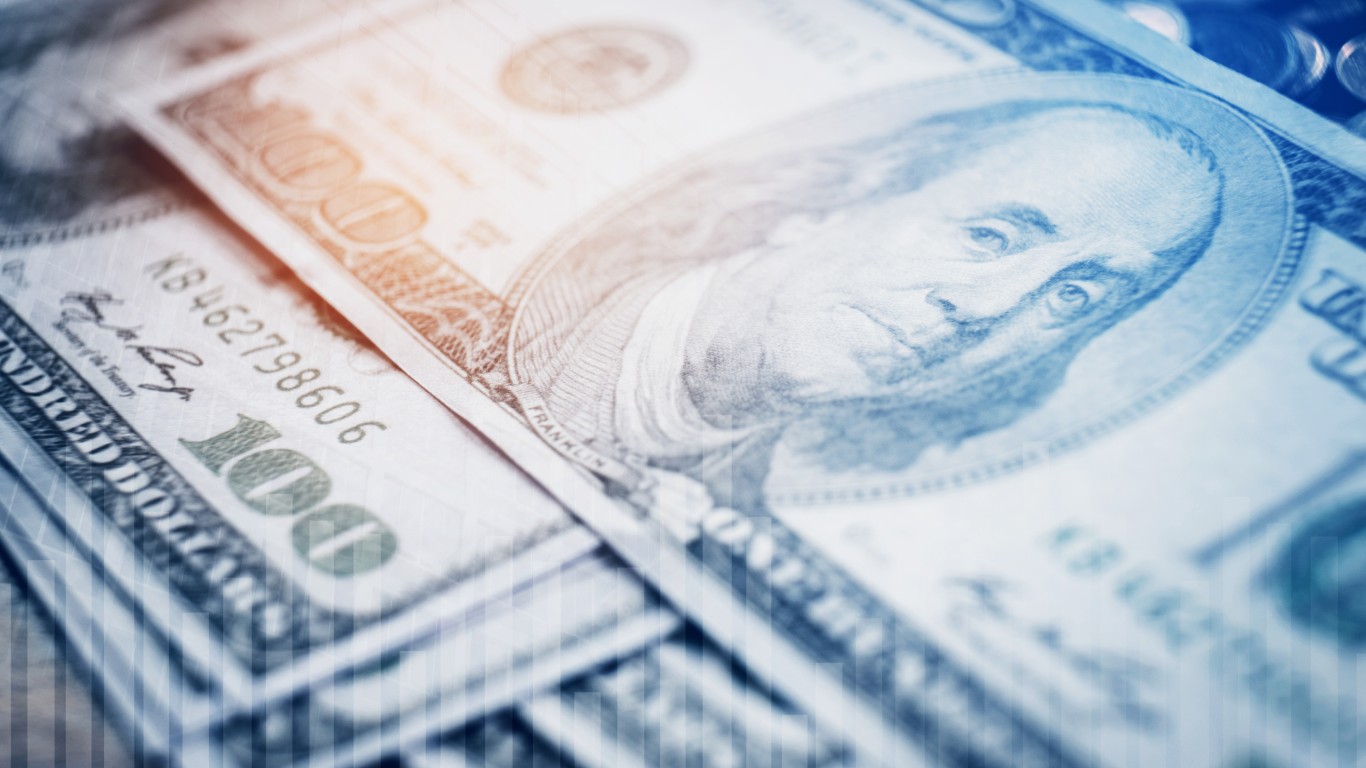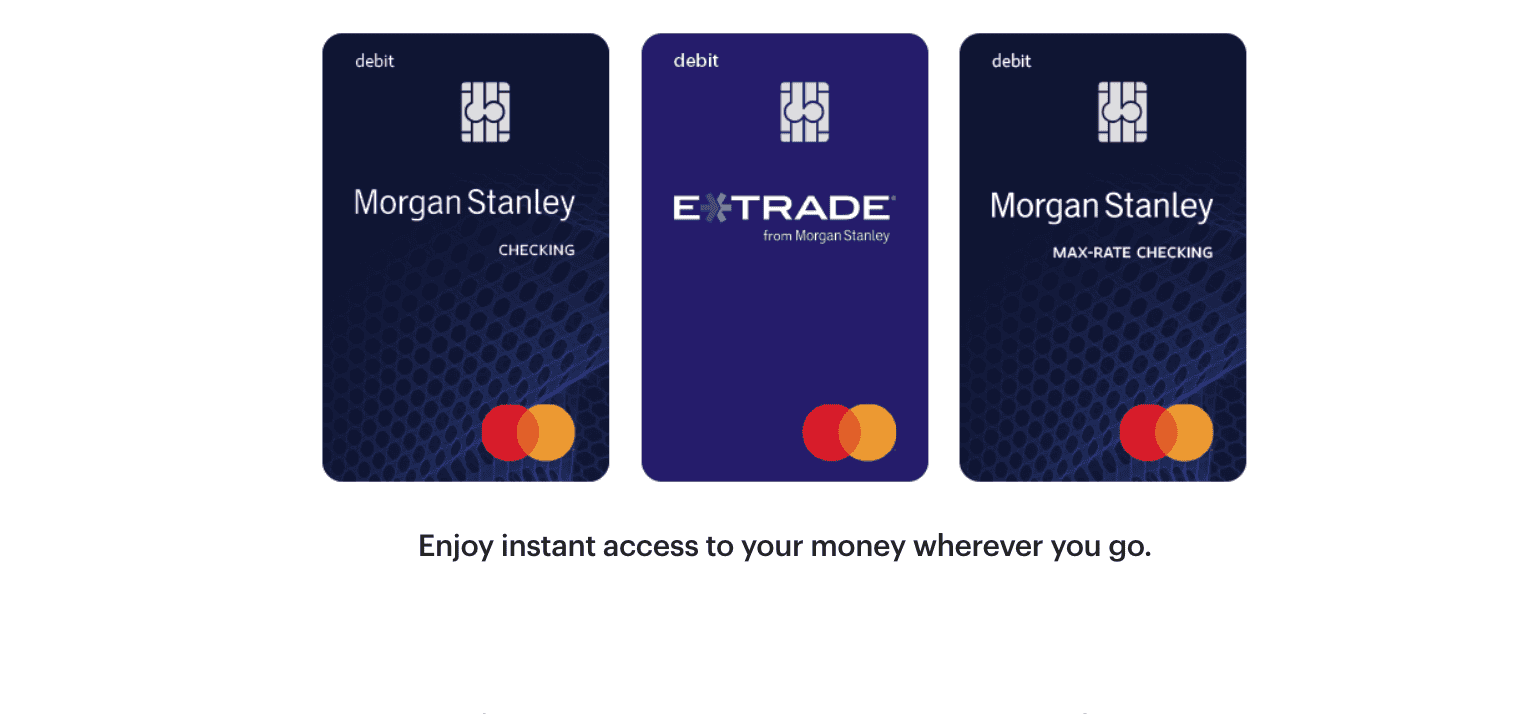Banking, finance, and taxes
E*Trade Checking Account Review. Is It Worth It?

Published:

If there’s one thing that American fathers love to teach their kids, it’s how to take care of their money and how to make more of it. At the center of these discussions, of course, is the importance of a checking account, right next to talking points about bootstraps, taxes, and self-sufficiency.
But is the traditional checking account as important as we were led to believe, or is it the last relic of a banking system that just refuses to evolve? How does E*Trade’s checking account stack up to the others? Here is everything you need to know about it.

It seems like our financial system is determined to scam you out of your money at every turn. If you’re not careful, you can find your hard-earned money being siphoned away by hidden fees, bad investments, crooked managers, and more. The only way, currently, to combat this is to do your research and practice caution where you spend or invest your money. We want to aid in that research. Read our full review of E*Trade here.

The checking account is actually just one of the most common names for a type of bank account known as a transaction account. The idea of the checking account is to have money available on demand for frequent and immediate access. To this end checking accounts usually have lower fees for cash withdrawals, transfers, and usually have a debit card attached to them.
The first checking accounts appeared in the 1500s in Holland, allowing people to store money for safety for a small fee. Increased competition led to the addition of additional features.
As more options for people to use and safely invest their money have entered the market (and people have less and less money left over to save), savings accounts have dropped in popularity while checking accounts remain a central feature of our financial system. People need easy and reliable access to their money while still keeping it safe. It is nearly impossible to set up any financial account without first having a checking account.

E*Trade is an online stock trading platform best known for giving inexperienced and newer traders a way to enter the stock market industry without needing to pay for a professional advisor or invest thousands of dollars with a traditional broker. Learn about E*Trade’s premier service, E*Trade Pro here.
E*Trade started in 1991 and quickly grew, going public in 1996, and now has over 5 million customers. In the years before E*Trade, trading stocks was the domain of professional brokers or boring mail-in orders, out of reach of the regular citizen. When newer digital-only trading platforms entered the market offering zero-commission trades and no account fees, E*Trade was forced to follow suit in order to survive and eliminated most of its fees as well.
In 2020, Morgan Stanley (NYSE:MS) acquired E*Trade and fundamentally changed how the platform operates by adding a plethora of new banking options and capabilities for existing and new customers alike. It is with this acquisition that a checking account option was added. For our review of E*Trade’s Premium Savings account, see it here.
In fact, E*Trade offers two different checking accounts: its Max-Rate Checking account and a standard checking account.
The standard checking account is a bare-bones account with no monthly fees and no account minimum requirements. According to E*Trade, it pays 1.5% APY on deposited funds and reimburses all ATM fees on ATM withdrawals within the United States. A particularly nice feature is that it doesn’t charge any fees for wire transfers, stop payment requests, and other common banking transactions. We recommend you look into the actual fee schedule to see if one of your favorite banking hobbies has a fee or not.
Since the checking account is provided through Morgan Stanley, customers enjoy all the security and coverage that a typical bank would provide, like FDIC insurance.
The Max-Rate Checking account is E*Trade’s premium checking account. It pays 3.00% APY on all deposits. While the normal checking account reimburses ATM fees only within the United States, the Max-Rate Checking account reimburses all ATM fees around the world. It also does not charge any fees for wire transfers, stop payment requests, and other common transactions.
However, this account does charge a monthly account fee of $15. This fee can be waived if you maintain at least $5,000 in your account.
So how do these accounts stack up? According to E*Trade itself, the standard checking account pays 21 times more than the national average, and the Max-Rate Checking account pays 42 times more than the national average APY. Those are pretty good numbers. There are definitely better accounts out there with more impressive features and even higher rates, but that doesn’t make E*Trade’s options a bad decision by any means. If you already have an E*Trade brokerage account, then signing up for a checking account can be a great option. You can definitely do much worse.
To answer our question of whether or not either checking account option is worth it, from an objective view we can say that they are if you want to have a place to keep some money for the short term. The high interest rates and low fees certainly beat much of the competition, but these should not be used as long-term accounts as inflation is much higher than the interest paid. If you’re not careful, you will slowly lose your money to inflation if you simply leave it in either of these accounts.
In addition to its checking accounts, E*Trade also offers a debit card that can be linked directly to your investment brokerage account if you just want debit card functionality.
If you’re curious about any other part of the E*Trade platform, check out this page: a regularly updated list of all our E*Trade guides, news coverage, and lists of benefits.
The last few years made people forget how much banks and CD’s can pay. Meanwhile, interest rates have spiked and many can afford to pay you much more, but most are keeping yields low and hoping you won’t notice.
But there is good news. To win qualified customers, some accounts are paying almost 10x the national average! That’s an incredible way to keep your money safe and earn more at the same time. Our top pick for high yield savings accounts includes other benefits as well. You can earn up to 3.80% with a Checking & Savings Account today Sign up and get up to $300 with direct deposit. No account fees. FDIC Insured.
Click here to see how much more you could be earning on your savings today. It takes just a few minutes to open an account to make your money work for you.
Thank you for reading! Have some feedback for us?
Contact the 24/7 Wall St. editorial team.